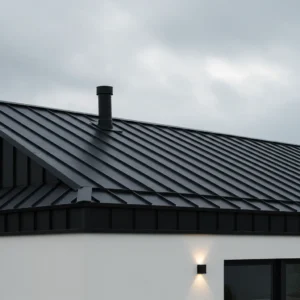Do Roofers Need to Be Licensed, Bonded, and Insured? (Everything Homeowners Should Know)
Find out why picking a licensed, bonded, and insured roofer helps keep your home, your money, and your family safe.

What Does It Mean for a Roofer to Be Licensed, Bonded, and Insured?
A licensed roofing contractor has passed tests, followed state rules, and shown they know a lot about roofing. If a roofer is bonded, it means a company promises your project money is safe. Insurance, like general liability and worker’s compensation insurance, protects you if something gets broken or someone gets hurt. These three things show that roofing contractors follow safety rules, do their work right, and care about keeping your roofing project safe—whether it’s fixing a small leak or putting in a big standing seam metal roof.
Is It Legally Required for Roofers to Be Licensed and Insured?
Yes, most places say roofers must have a general contractor license or a home improvement license, depending on what kind of roofing job they do. Having a license proves the roofer follows state laws and helps avoid problems with unlicensed workers. These rules keep homeowners safe from surprise bills if something goes wrong during home roofing jobs or bigger projects. If you hire someone without a license, you might lose your roof warranty or run into big problems.
How to Get a Roofing License (And Why It Matters for Homeowners)
To get a license, roofers have to be old enough, have a high school diploma, and get roofing experience on real jobs. They also have to pass a trade test, show they have insurance, and sign up with the state. Some even go through apprentice programs or take special classes to stay up to date. The license process proves the roofer knows the rules and how to do the job safely. For homeowners, hiring a licensed roofer means you’re working with someone trained and responsible.
Contents
- Understanding the Annual Roofer Salary in the U.S.
- Hourly, Weekly, and Monthly Roofer Wages Explained
- Roofer Pay by Experience, Specialization, and Certification
- Income Comparison by State and Region
- Benefits and Bonuses in the Roofing Industry
- Roofing Business Owner vs. Roofer Salary
- What Affects Roofer Income the Most?
- Final Thoughts: Roofing Pay Potential in 2024 and Beyond
What Are License Reciprocity Agreements for Roofing Contractors?
License reciprocity agreements let roofers use their license in more than one state without needing a new one each time. Not every state allows this, but it helps roofing companies who work in many places follow the rules. Even with these agreements, you still need to make sure the roofer has valid insurance and bonding papers. That way, you know your roofing project—like roof maintenance & coating—is protected no matter where the work happens.
What Happens If You Hire an Unlicensed or Uninsured Roofer?
If a roofer doesn’t have a license or insurance, your roofing project could be in big trouble. If someone gets hurt or the job goes wrong, you might have to pay the bills. These roofers also might not follow safety rules or keep promises. They could leave jobs unfinished or mess up your aluminum metal roofing or roof replacement. That’s why it’s important to see proof of licenses and insurance before you hire anyone.
How to Verify a Roofer’s License, Insurance, and Reputation
You can check licenses online using tools from your state. Ask the roofer to show proof of general liability, worker’s comp, and insurance for their work trucks. Look at reviews and ask for past jobs or references. You can also see if they belong to roofing groups. A good roofer will offer clear service plans, warranties, and quality roof maintenance & coating options to help you feel confident in your choice.
Types of Roofing Insurance Every Contractor Should Have
Every roofer needs to have general liability insurance, worker’s comp, and vehicle insurance for their company trucks. Some also get umbrella insurance for extra safety and tool insurance to protect their gear. These insurances help in case someone gets hurt or something breaks. This is even more important when doing big jobs like skylight installation, storm damage roof replacement, or metal roofing. Always ask about these policies to make sure your home is protected.
Benefits of Hiring a Licensed and Insured Roofing Contractor
Choosing a roofer with the right paperwork means your job will be done safely and right. It shows they’ve passed tough tests, follow safety rules, and know what they’re doing. For bigger jobs like standing seam metal roof or aluminum metal roofing installs, it means they’ll follow manufacturer rules too. You’ll get stronger warranties and fewer problems if something goes wrong. A good roofer makes your project smooth from start to finish.

Do Roofers Need to Be Licensed, Bonded, and Insured? (Everything Homeowners Should Know)
Premium Roofing Solutions Blog Do Roofers Need to Be Licensed, Bonded, and Insured? (Everything Homeowners Should Know) Find out why picking a licensed, bonded, and
